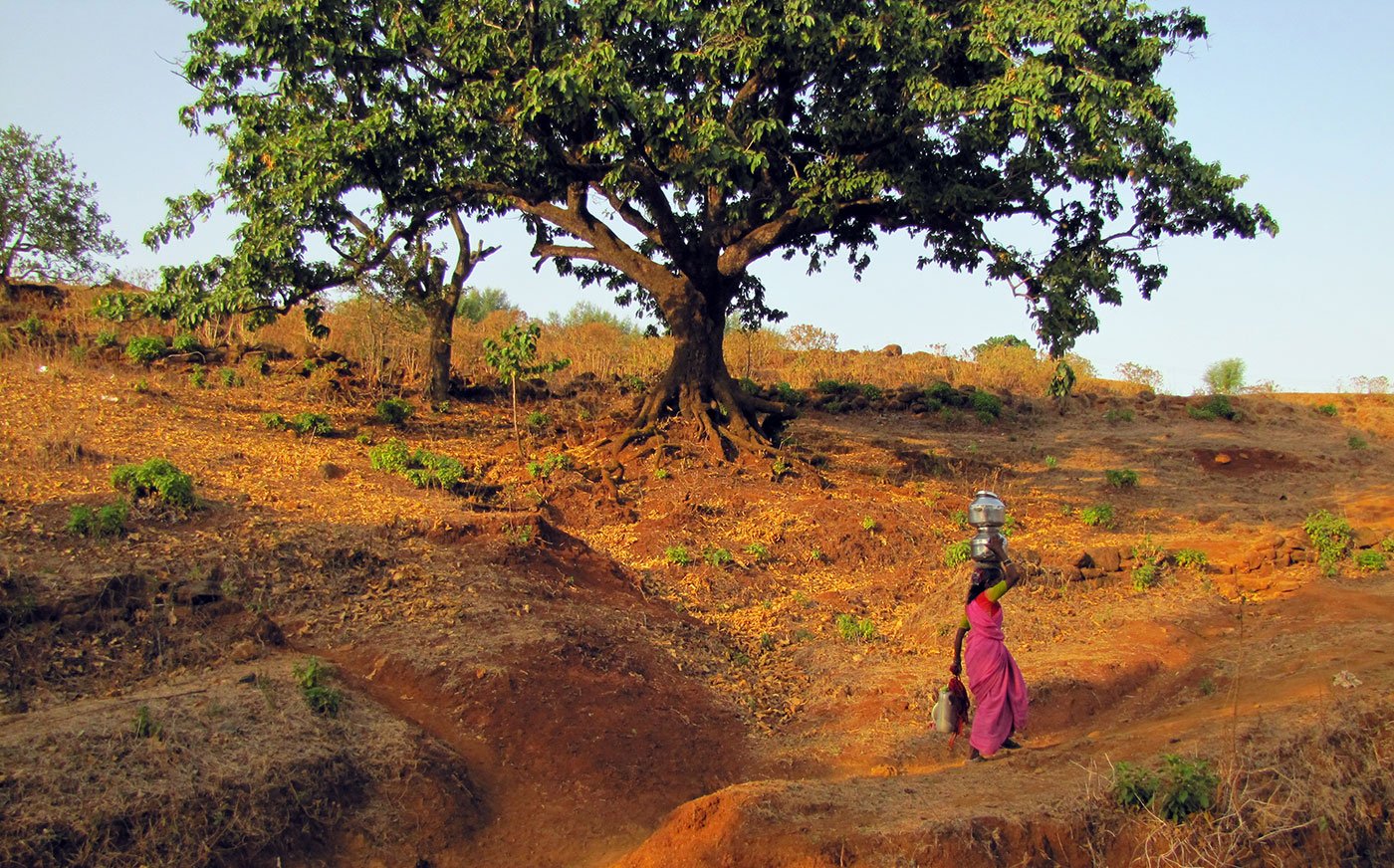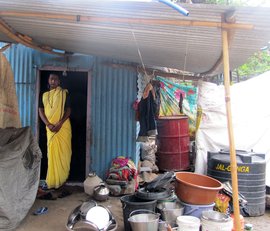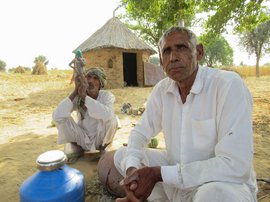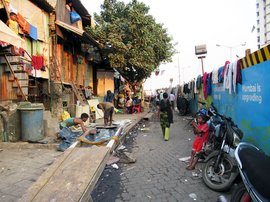Lilabai Memane is sitting on the floor of her two-room mud and brick house. Two of her daughters are next to her, doing their school homework. It is one the few quiet moments in her 19-hour work day.
From 10 a.m. to 2 p.m. six days a week, Lilabai is at the state-run anganwadi to cook food for 30 kids and for pregnant women in the village. By the time she reaches the anganwadi , she has already been up and working for seven hours. And she stops only around 10 at night.
When Lilabai wakes up by 3 a.m., one of her first tasks is fetching water from a well two kilometres away. “At least 20 pots of water are required, my daughters help,” she says. Lilabai’s husband helps too. Between them, the family makes at least four trips to the well over four hours.
Their village, Phalode, in Ambegaon taluka of Pune district, usually goes dry every year from March to June. The 464 people (Census 2011) in the village, many of them from the Koli Mahadev community, depend on the water from one well. When the well runs dry, they subsist on water from private tankers.
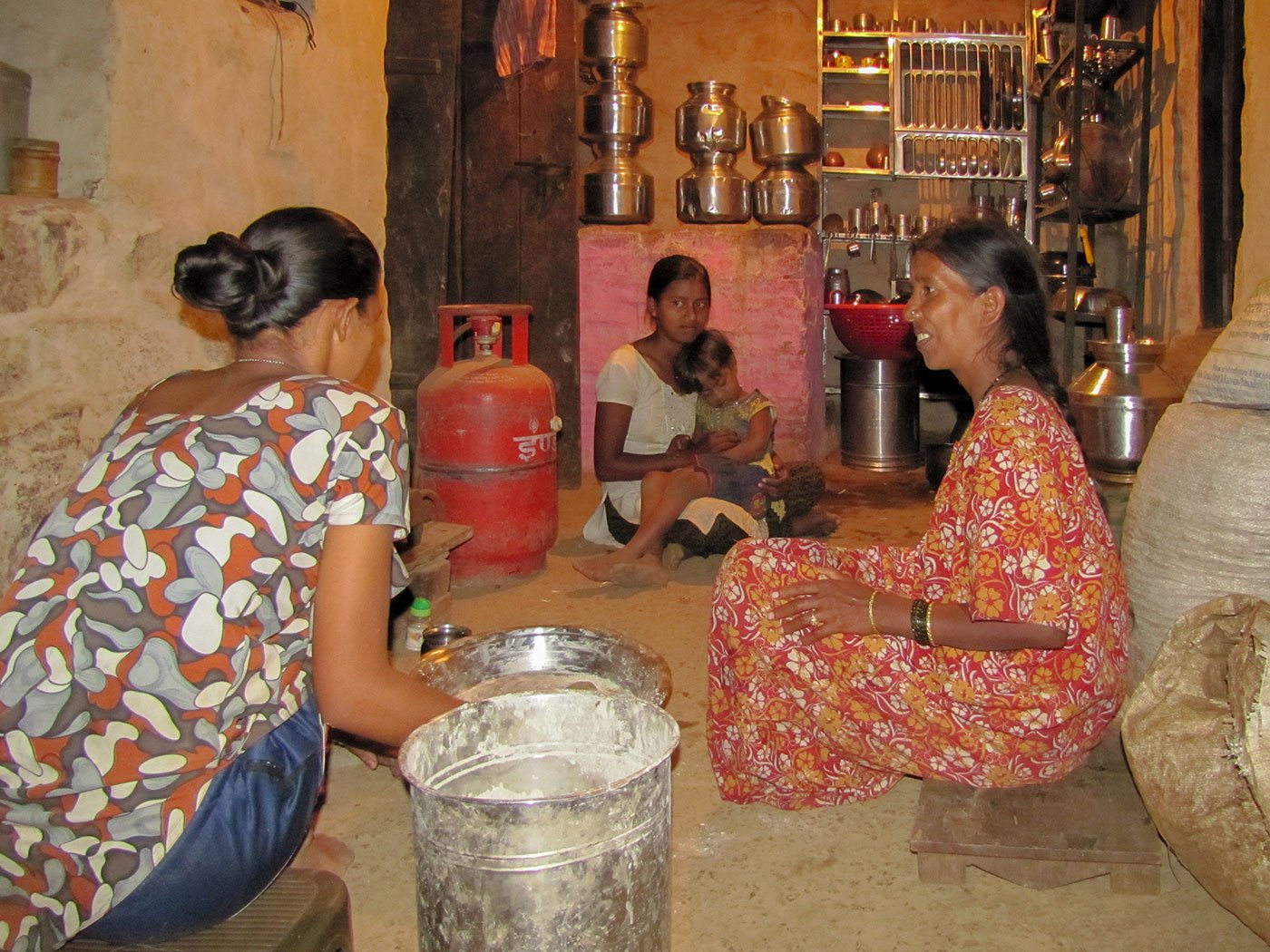
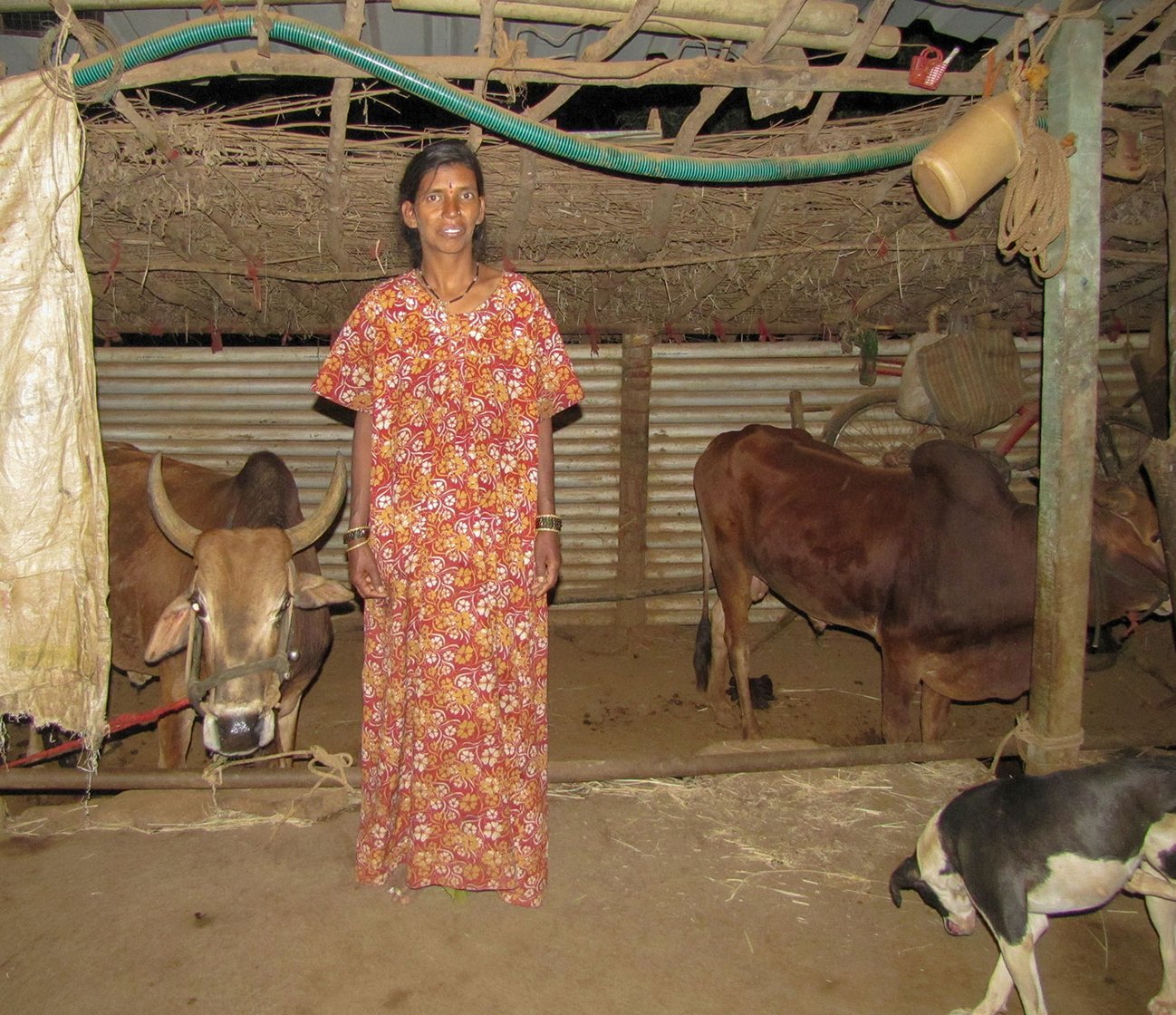
'I have to cook for 11 family members. The bullocks have to be fed, dung has to be removed', says Lilabai, describing her 19-hour work day
Lilabai and her husband Bhagu have nine children – the oldest is 23, the youngest is 4. “Everyone at home felt that a son is needed to provide support in old age and so I have eight daughters and one son,” Lilabai says. “We find it difficult to bear the cost of bringing up all the children and pay for their education. But what can be done? I was helpless because in our community it was considered most important to have a son.”
After fetching water, Lilabai turns to her tasks in the kitchen. Like many houses in this village, her dwelling too has a low door – you have to bend down to enter. Inside, the floor and walls are plastered with dung. A three-stone stove is in a corner next to some earthen pots and a few pans. Two buffaloes are tied to bamboo poles in an adjacent shed.
“I have to cook for 11 family members. The bullocks have to be fed, dung has to be removed,” she says. Cooking twice a day – a meal usually consist of bhakris made of bajra or nachni , a vegetable and rice – can take up to three hours of Lilabai’s and her daughters’ time.
After returning from the anganwadi , she works on their two-acre farm till 7 p.m. “Threshing, digging up, weeding, planting paddy saplings – I do all this work. My husband ploughs the fields and works on the bunds to hold water. All this has to be done by November. We get about 4 to 6 bags of rice [for the family’s consumption, not for sale], but that is not enough for us.”
Bhagu Memane, Lilabai’s husband, adds, “We cannot live only on our own farm produce. So we work as labourers for others, planting paddy. We earn Rs. 150 a day. But this work is only for a month.” After the paddy is harvested by December and till the start of the monsoon in June-July, water and farm work are both scarce. A few families in the village then cultivate other crops like bajra , and Lilabai and her husband work on their fields as daily wagers when work is available.
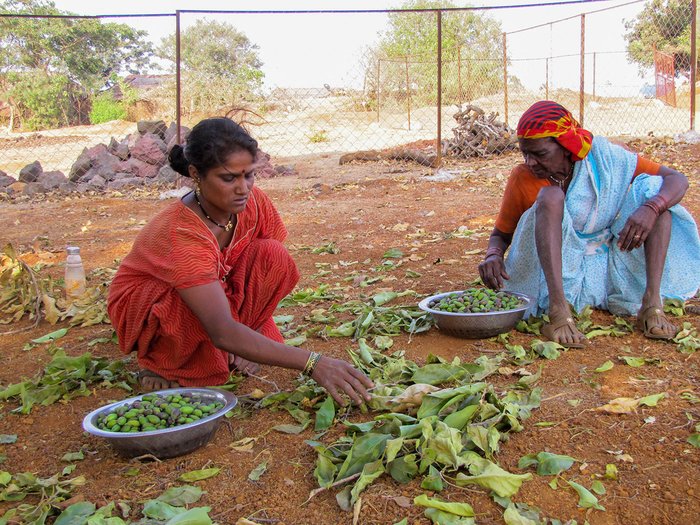
From March to May, Lilabai, like most of the women in Phalode, collects fruit from the
hirda
trees. It is used in ayurvedic medicines. In a day, they collect 10 to 15 kilos. The fruit is sorted and dried, which reduces its weight to barely 3 or 4 kilos
Twice a week, Lilabai walks around 10 kilometres to a forest to bring back 7 to 10 kilos of firewood. This can take nearly four hours. Some of the wood is stored for the monsoon months, the rest is used every day.
From March to May, most of the women in the village collect fruit from the hirda (black or chebulic myrobalan) trees in this area. The berry-like oval fruit is used in ayurvedic medicines. In March, Lilabai collects the fruit after completing her anganwadi tasks, and when the anganwadi is closed in April and May, she finishes housework and collects hirda from 10 a.m. to 6 p.m., along with her daughters.
In a day, they collect 10 to 15 kilos. The fruit is then sorted and dried, which reduces its weight to barely 3 or 4 kilos. Local traders pay Rs. 120 per kilo for the small medicinal fruit, and just Rs. 10 per kilo for the bigger fruit in May. The family earns Rs. 20,000- 30,000 from this work in the three-month season.
The anganwadi work brings Rs. 1,000 a month, but Lilabai gets paid only once in 3-4 months. “We have to make this money last for all our needs – groceries, the children’s education, medicines. But this amount is not enough. We are willing to work more but no is work available here.”
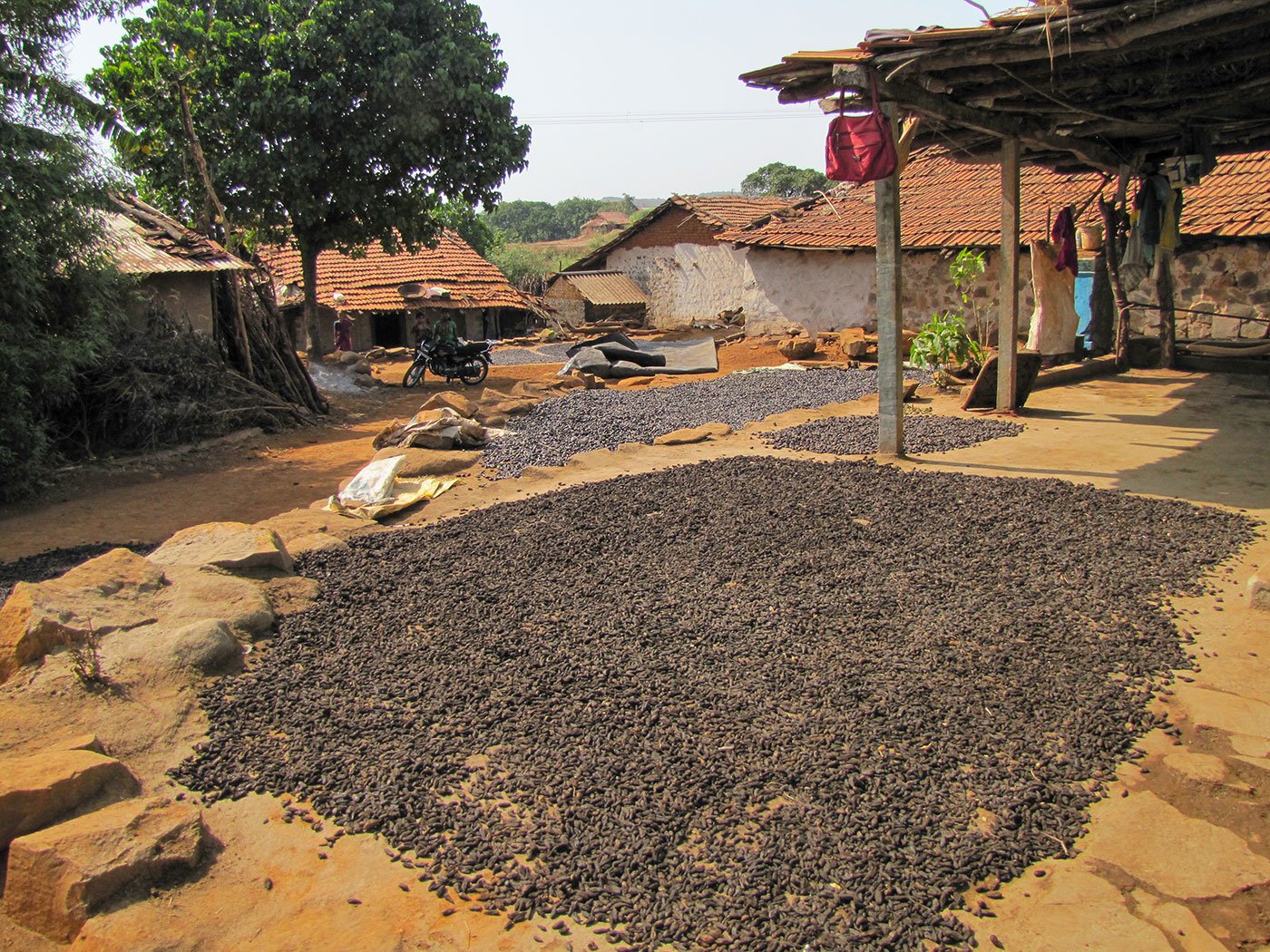
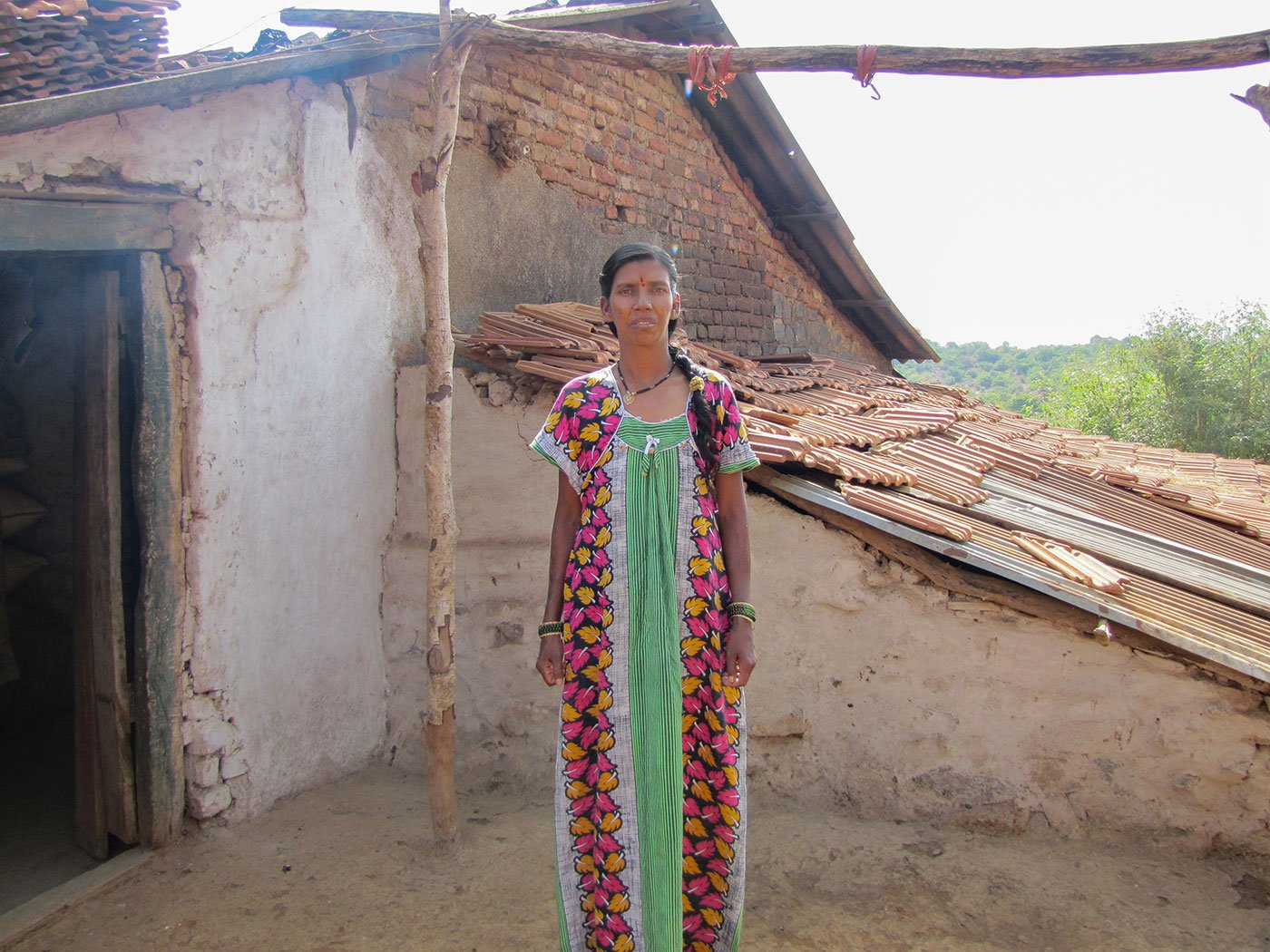
Lilabai dries fruit from the hirda tree outdoors, and then sells it to traders by the kilo; this is just one of her many efforts to earn an income
Now 40, this has been Lilabai’s ceaseless work routine for three decades. “My parents got me married when I was 13. I wanted to study, so I continued in school even when I was living with my husband and in-laws, and passed the 10th standard in 1994. But I was not allowed to study further because my in-laws felt it would not do to have me study more than my husband [he had failed his 10th standard]. That was the end of my education.”
Since 2016, two non-governmental organisations have been running adult literacy classes in Phalode village. Even after working for long hours, Lilabai volunteers to teach the village women at these informal classes, often held in someone’s home. When some women were reluctant to take time off from housework to attend the classes, Lilabai went from house to house to talk to them. She has helped teach 30 women how to read a bit and sign their names.
Through their decades of hard work, Lilabai and her husband have tried to give their children an education. Their oldest daughter, Priyanka, 23, has a BCom degree and is preparing for the state’s competitive exams to try and get a government job. She recently got married and now lives in Alibag. Pramila, 20, has been selected as a constable in the Maharashtra police force, but has not yet been asked to join work. Urmila, 18, is studying in Manchar village, around 50 kilometres from Phalode, for a BA degree. In 2018, 16-year-old Sharmila obtained 78 per cent in the Class 10 board exams. Nirmala is in Class 9, Gauri in Class 6 and Samiksha in Class 1. Their son Harshal is four and goes to the anganwadi where Lilabai works.
“I keep worrying that I should not fall short as a parent in giving them a good education, in ensuring their good health,” she says. “I constantly feel they should not have to suffer like I have. Our circumstances will change only if they study and get jobs. I can’t sleep thinking about my children’s future. But the next day, for them, I re-energise myself and start working again.”
Special thanks to Kiran Moghe and Subhash Thorat for suggesting I visit Phalode village for this story, and Amol Waghmare for help in getting around the village.
